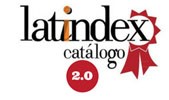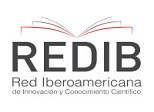The Precarious Reader is Strengthened in the Classroom
DOI:
https://doi.org/10.69890/hallazgos21.v5i1.399Keywords:
teaching beliefs; reading; expository texts.Abstract
Reading in class is a standard practice in most classrooms. The objectives that teachers give reading, the type of text and the activities that take place around the reading act change. What teaching beliefs shape the reading practice? Can you understand the teachers´ performance by discovering their beliefs? The research presented is ethnographic in focus. As a method, the case study was used, where the beliefs of a teacher of language and literature are investigated when changing from a certain curricular approach to another. The study was carried out in Chile, with a teacher who works in a municipal (public) educational center. The results confirm that teaching performance can be understood through understanding the beliefs that guide pedagogical practice. There is coherence between what the teacher says to do and what she does when she develops reading practices with expository texts in the classroom. However, it is not guided by the current curriculum, but by its beliefs regarding the sociocultural origin of the students.
References
Bellei, C. (2007). Expansión de la educación privada y mejoramiento de la educación en Chile. Evaluación a partir de evidencias. Revista Pensamiento educativo, 40(1), 285-312.
Ballesteros, C., Llobera, M., Cambra, M., Palou, J., Riera, M., Civera, I., … Perera, J. (2000). El pensamiento del profesor. Enseñanza de lengua y reforma. En A. Camps (Ed.), El aula como espacio de investigación y reflexión. Investigación en didáctica de la lengua. Barcelona: Graó, 195- 208.
Barton, D. (1994). The social impact of literacy. En L. Vertoeven (Ed.), Functional Literacy. Theoretical issues and Educational implications, 1, 185-212. Amsterdam / Philadelphia: John Benjamins Publishing Company.
Barton, D., & Hamilton, M. (1998). La literalidad entendida como práctica social. London: Routlege. Recuperado de https://lecturayescrituraunrn. files.wordpress.com/2015/02/barton-y-hamilton-la-literacidad-entendida-como-prc3a1ctica-social.pdf
Borg, S. (2003). Teacher cognition in language teaching: A review of research on what language teachers think, know, believe, and do. Language teaching, 36(2), 81-109.
Cambra, M., Ballesteros, C., Palou, J., Civera, I., Riera, M., Perera, J., ... Llobera, M. (2001). El pensamiento del profesor. Enseñanza de la lengua y Reforma. En A. Camps (Ed.), El aula como espacio de investigación y reflexión. Barcelona: Graó, 195- 205.
Clark, C., & Peterson, P. (1986). Teachers' thought processes. En M.C. Wittrock (Ed.), Handbook of research on teaching. New York: Macmillan. Traducción al español (1990). Procesos de pensamiento de los docentes (trad.). En M. Wittrock (Ed.), La investigación de la enseñanza. Profesores y alumnos. III, 444-531. Madrid: Paidós-MEC.
Clark, C., & Yinger, R. (1979). Teacher`s thinking. En P. L. Peterson y H. J. Walberg (Eds.), Research on teaching. Berkeley, CA: McCutchan.
Doyle, W. (1985). La investigación sobre el contexto del aula: hacia un conocimiento básico para la práctica y la política de formación del profesorado. Revista de Educación, 277, 29-42.
De Beaurande, R. A., & Dressler, W. U. (1981). Introducción a la lingüística del texto. Barcelona: Ariel.
Fang, Z. (1996). A review of research on teacher beliefs and practices. Educational Research, 38(1), 47-64. Recuperado de https://harland-kyei-blankson.wikispaces.com/file/view/teacher-beliefs-practice2.pdf
Guthrie, J., Schafer, W., Wang, Y., & Afflerbach, P. (1995). Relationsips of instruction to amount of reading: An exploration of social cognitive and instructional connections. Reading Research Quarterly, 30(1), 8-25.
Hull, G. (1994). Hearing other voices: a critical assessment of popular views on Literacy and work. En G. Hull (ed), Changing Work, changing workers (pp. 3-42). New York: State university of New York Press.
Imbernon, F. (1994). La formación y el desarrollo profesional del profesorado: hacia una nueva cultura profesional. Barcelona: Graó.
Kalman, J. (2002). La importancia del contexto en la alfabetización, Revista Interamericana de Educación de Adultos, 24(3), 11-28.
Kalman, J. (2002). La importancia del contexto en la alfabetización. Revista Interamericana de Educación de Adultos, 24(3), 11-28.
McMillan, J. H., & Schumacher, S. (2005). Investigación educativa. Madrid: Pearson.
Phipps, S., & Borg, S. (2007). Exploring the relationship between teachers' beliefs and their classroom practice. The Teacher Trainer, 21(3), 17-19.
Phipps, S., & Borg, S. (2009). Exploring tensions between teachers’ grammar teaching beliefs and practices. Recuperado de http://www.sciencedirect.com/science/article/pii/S0346251X09000542
Rinaudo, M. (2006). Estudios sobre la lectura. Aciertos e infortunios en la investigación de las últimas décadas. Textos en contextos 8. Buenos Aires: Asociación internacional de la Lectura.
Rockwell, E. (2001). La lectura como práctica cultural: conceptos para el estudio de los libros escolares. Educação e Pesquisa, São Paulo, 27(1), 11-26.
Sánchez, M., García-Pérez, J. R., y Rosales, J. (2010). La lectura en el aula. Qué se hace, qué se debe hacer y qué se puede hacer. Barcelona: Graó, 498.
Shavelson, R. J., & Stern, P. (1981). Research on teachers' pedagogical thoughts, judgements, decisions, and behaviour. Review of Educational Research, 51, 455-498.
Shulman, L. (1986). Paradigmas y programas de investigación en el estudio de la enseñanza: una perspectiva contemporánea. En M. Wittrock (Comp.), La investigación de la enseñanza, I: enfoques, teorías y métodos. Madrid: Paidós, 9- 94.
Strauss, A., & Corbin, J. (2002). Bases de la investigación cualitativa. Técnicas y procedimientos para desarrollar la teoría fundamentada. Medellín: Universidad de Antioquia.
Tardif, M. (2004). Los saberes del docente y su desarrollo profesional. Madrid: Narcea.
Vygotsky, L. (1979). El desarrollo de los procesos psicológicos superiores. Barcelona: Crítica [original de 1931]
Wertsch, J. (1993). Voces de la mente un enfoque sociocultural para el estudio de la acción mediada. Madrid: Aprendizaje Visor.
Williams, M., & Burden, R. (1997). Psicología para profesores de idiomas: Enfoque del constructivismo social. Cambridge: Cambridge University Press.
Woods, D. (1996). Teacher Cognition in Language Teaching: Beliefs, decision-making and classroom practice. Cambridge: Cambridge University Press.
Published
How to Cite
Issue
Section
License
Los artículos enviados a la Revista Científica Hallazgos21 deberán ser totalmente originales e inéditos.
Los autores son los responsables de los textos y las imágenes incluidas en los artículos y no necesariamente reflejan el pensamiento de la editorial o de la Pontificia Universidad Católica del Ecuador, Sede Esmeraldas (PUCESE).
Los autores disponen cederle a la Revista Científica Hallazgos21 todos los derechos inherentes para la edición, publicación y distribución o divulgación del mismo.
Se autoriza a las revistas firmantes de los acuerdos de Encuentros de Revistas Latinoamericanas para reproducir en parte o totalmente los artículos con la sola mención de la fuente claramente señalada.







